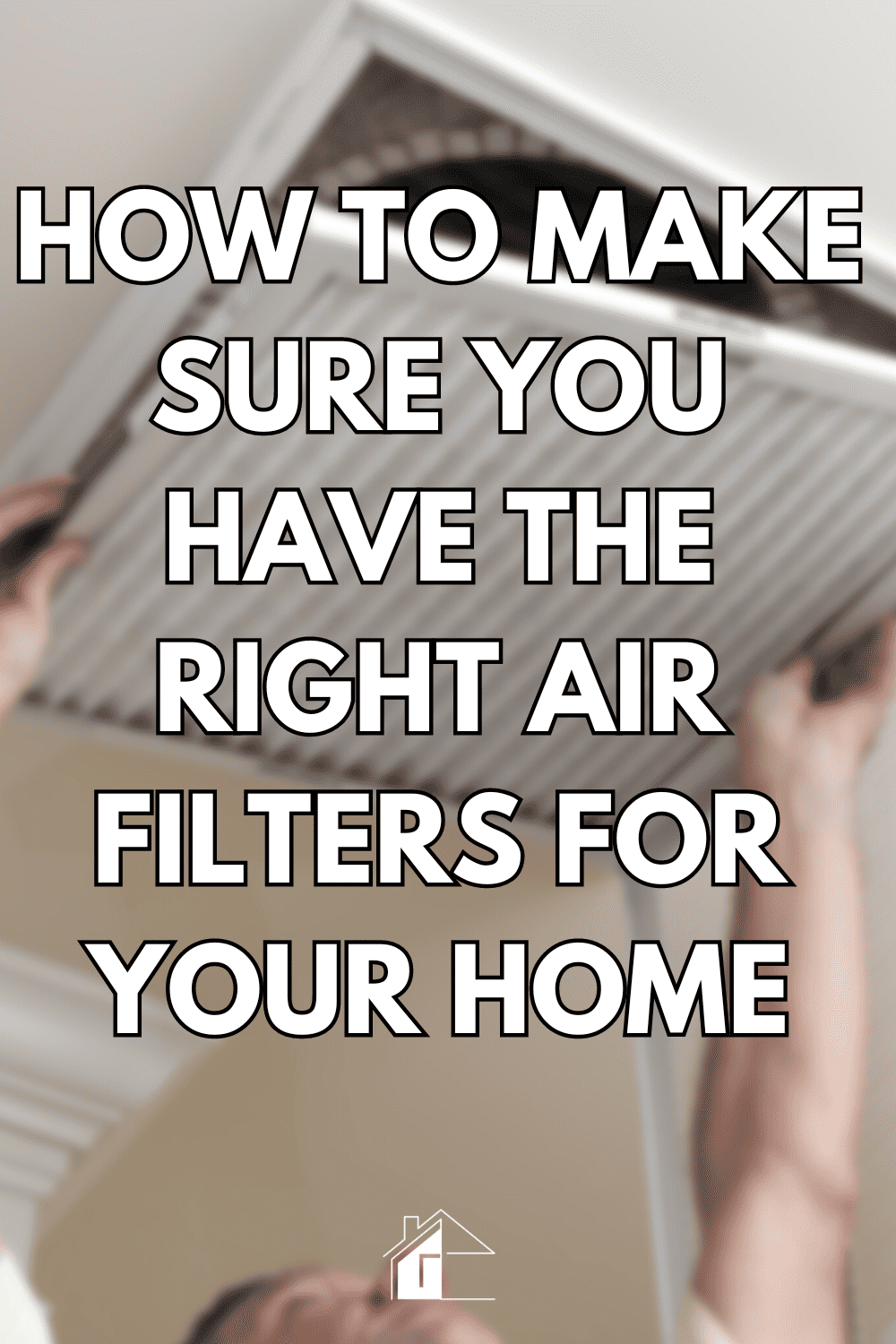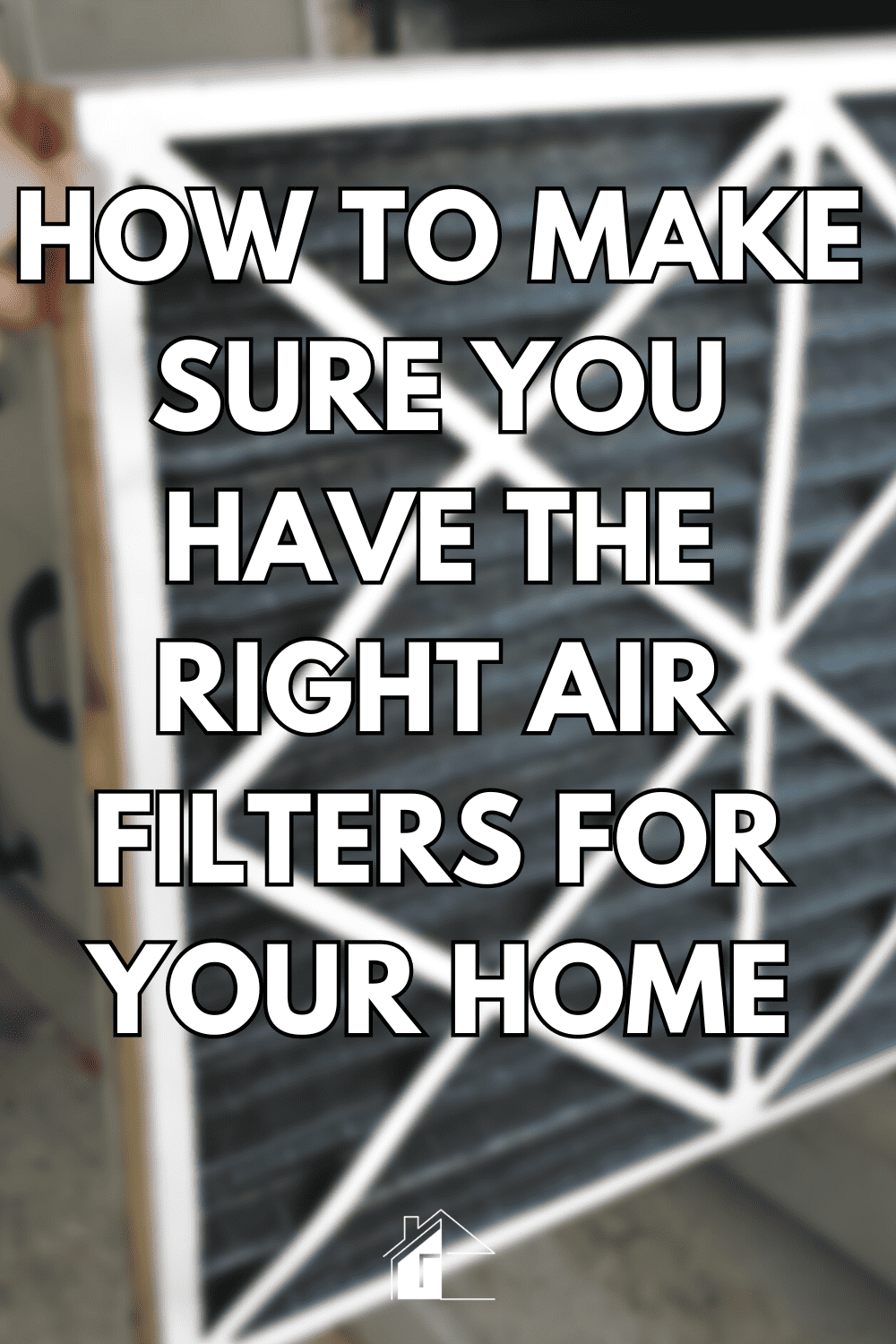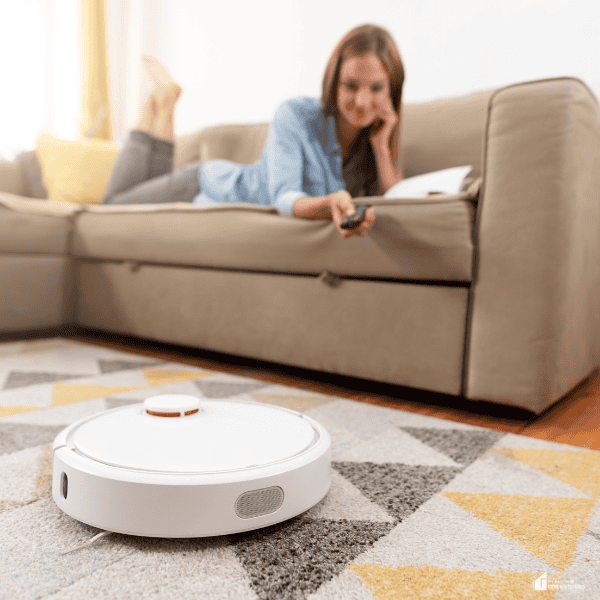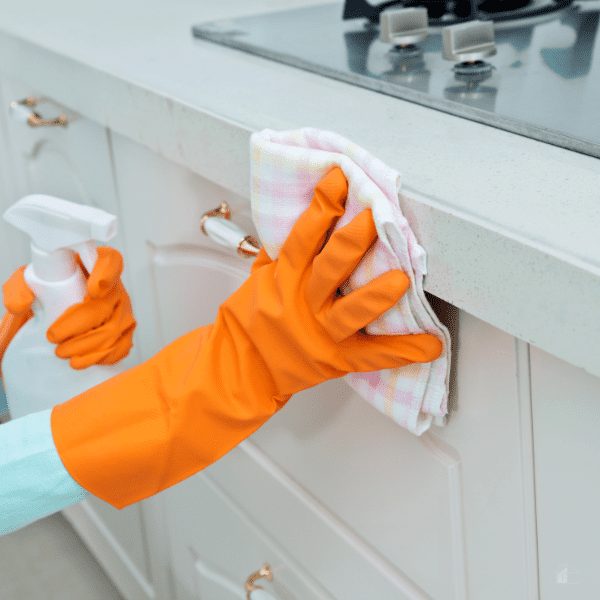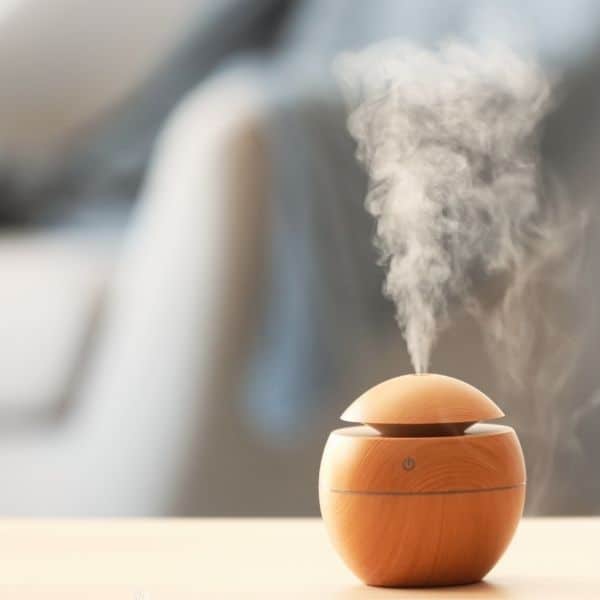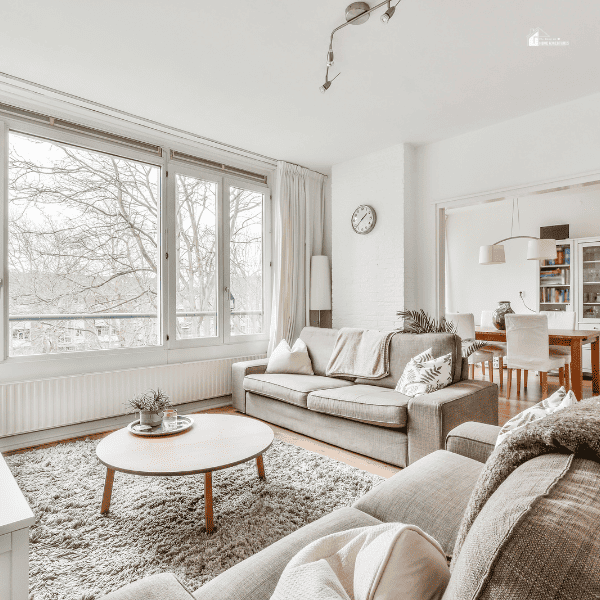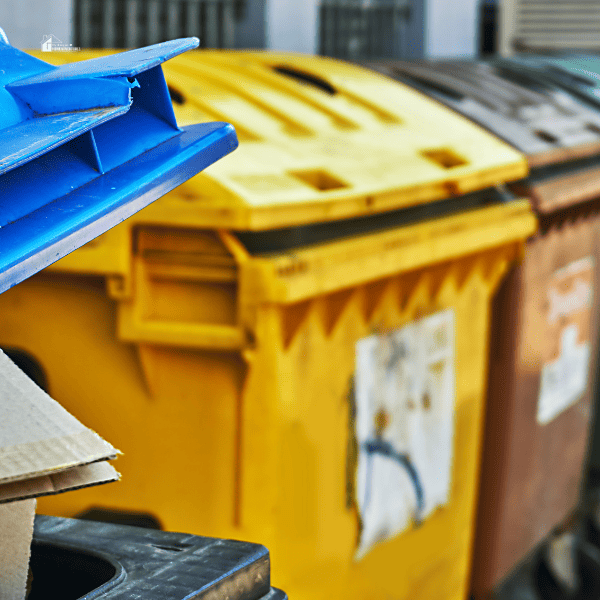Does Changing an Air Filter Save Money?
This post may contain affiliate links which might earn us money. Please read my Disclosure and Privacy policies hereMaintaining a properly functioning HVAC system is essential for comfort and energy efficiency in any home or business. One often overlooked aspect of HVAC maintenance is regular air filter changes. Many people are unaware of the significant impact that dirty air filters can have on their HVAC system's performance and their monthly energy bills.
Why changing air filters is important for saving money.
Regularly changing air filters is crucial for saving money in multiple ways. Firstly, clogged or dirty air filters cause all HVAC systems to work harder to push air through, resulting in higher energy usage and, ultimately, higher energy bills. By keeping air filters clean, HVAC systems can operate more efficiently, reducing energy costs and saving money in the long run.
The impact of dirty air filters on energy efficiency
When air filters become clogged with dirt, dust, and debris, they restrict airflow and reduce the efficiency of the HVAC system. As a result, the system has to work harder and harder to deliver conditioned air, putting a strain on its components.
This increased strain can lead to premature wear and tear, costly repairs, or even a complete system replacement. By changing air filters regularly, the HVAC system can operate at peak efficiency, extending its lifespan and avoiding expensive repair bills.
Changing air filters is a simple yet effective way to save money. It improves energy efficiency, reduces energy costs, and extends the life of the HVAC unit. Homeowners and business owners can reap the financial benefits of lower energy bills and reduced repair expenses by prioritizing this small maintenance task.
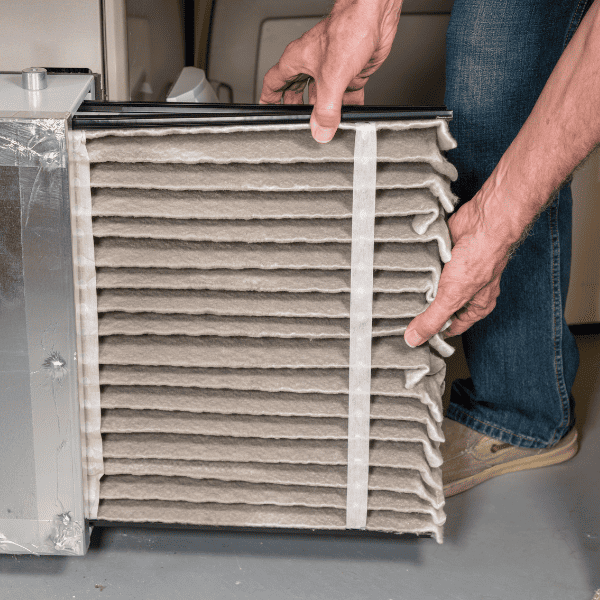
Does changing the air filter save money?
Factors to consider when determining how often to change air filters
The frequency at which air filters should be changed depends on several factors. These factors include the type of filter used, the presence of pets or smokers in the home or business, and the overall air quality in the area.
Pet dander and cigarette smoke can contribute to faster filter buildup, requiring more frequent replacements. Additionally, areas with high levels of pollutants or allergens may require more frequent filter changes to maintain optimal air quality and system performance.
Recommended frequency for different types of filters
Different types of air filters have varying lifespans. Standard fiberglass filters typically last around 30 days, while pleated filters can last up to 90 days. However, it's important to note that these timeframes are general recommendations, and factors such as the ones mentioned earlier may necessitate more frequent changes.
It's always best to consult the manufacturer's guidelines or consult with an HVAC professional to determine the specific needs of your system.
By regularly changing air filters, homeowners and business owners can ensure that their HVAC systems operate efficiently, reducing energy costs and saving money in the long run.
Additionally, clean air filters help maintain better indoor air quality, promoting the health and well-being of occupants. A small investment in air filter replacement can yield significant savings and improve overall comfort and satisfaction.
Energy savings from changing air filters
How clean air filters improve HVAC system efficiency
Regularly changing air filters in your HVAC system is a simple and effective way to improve its efficiency and save money. When the air filter becomes clogged and dirty, it restricts the airflow, causing the system to work harder to circulate the air throughout your home or business. This increased strain on the system leads to reduced efficiency and higher energy consumption, resulting in inflated energy bills.
By regularly replacing air filters, you can ensure that your HVAC system operates at its optimal efficiency. Clean air filters allow the system to perform efficiently by providing unrestricted airflow, ensuring the air is distributed evenly and effectively. This saves energy and prolongs your HVAC system's lifespan by reducing wear and tear.
The potential percentage of energy savings
Changing your air filter regularly can save up to 15% of your energy consumption. Based on these numbers, you can save around $150 or more annually if you replace your filter at least every three months. However, the actual savings can vary depending on factors such as your climate, energy consumption habits, and the price of air filters.
It's important to note that these energy savings are not insignificant. By taking a proactive approach to air filter maintenance, you can reduce your energy bills and contribute to a greener and more sustainable environment.
Remember, the key to achieving these energy savings is consistently changing your air filters according to the manufacturer's guidelines or consulting with an HVAC professional.
Preventing costly HVAC repairs
The role of clean air filters in preventing system breakdowns
Regular HVAC maintenance plays a crucial role in preventing costly repairs and breakdowns. One of the main components of this maintenance is regularly changing the air filters. When air filters become dirty and clogged, they restrict airflow and put extra strain on the HVAC system. This can lead to system breakdowns and expensive repairs.
Changing air filters according to the manufacturer's guidelines ensures that your HVAC system operates efficiently and avoids unnecessary damage. Clean air filters allow for proper airflow, preventing the system from overworking and reducing the risk of overheating or mechanical failures.
The cost of repairs and replacements
Repairing an HVAC system can be costly, especially if the damage has gone unnoticed or the system has completely broken down. In some cases, the cost of repairs can even be comparable to purchasing a new HVAC unit.
By scheduling regular maintenance and changing your air filters, you can identify potential issues before they lead to significant damage. This proactive approach to maintenance can help you avoid expensive repairs and extend the lifespan of your HVAC system.
Investing in regular maintenance and air filter changes is an effective way to lower the frequency of HVAC repairs and save money in the long run. By maintaining your system from the start, you can prevent unnecessary damage and avoid the need for expensive repairs or replacements.
Extending the lifespan of your HVAC system
The connection between clean air filters and system longevity
Regularly changing your air filters is a simple yet effective way to extend the lifespan of your HVAC system and save money in the long run. Again, when air filters become clogged with dirt and debris, they restrict airflow and cause your system to work harder to cool or heat your home. This extra strain can lead to premature breakdowns and costly repairs.
Changing your air filters can help prevent overheating and mechanical failures that could lead to expensive repairs or even the need for a system replacement.
Potential savings from delaying HVAC system replacements
Replacing an HVAC system can be a significant expense. By regularly maintaining your system and changing your air filters, you can prolong the life of your current unit and delay the need for a costly replacement.
By investing in regular maintenance and filter changes, you can avoid unnecessary damage to your HVAC system, save money on repairs, and enjoy the comfort of a properly functioning system for years to come.
Taking the time to change your air filters regularly improves your HVAC system's energy efficiency and extends its lifespan. By preventing unnecessary strain and damage, you can save money on repairs and delay an HVAC system replacement expense for as long as possible.
Does Changing Air Filters Save Money?
How clean air filters contribute to healthier indoor air
Regularly changing your air filters not only improves the quality of your indoor air but can also save you money in the long run. Air filters play a crucial role in trapping dust, pollen, pet dander, and other pollutants, preventing them from circulating throughout your home.
When air filters become clogged and dirty, they are less effective in capturing these pollutants, allowing them to build up in your indoor air and potentially causing respiratory issues and allergies.
By changing your air filters regularly, you can ensure that your indoor air is clean and free from harmful pollutants. This can improve your and your family's health, reducing the risk of respiratory illnesses and allergies and saving you money on medical bills and medication.
The cost of poor indoor air quality on health
Poor indoor air quality can have significant health implications, leading to increased risks of respiratory problems, allergies, and even long-term illnesses. Exposure to pollutants such as dust, pollen, mold spores, and volatile organic compounds (VOCs) can trigger asthma attacks, cause allergies to flare up, and negatively impact overall well-being.
When air filters are not changed regularly, they become clogged with dirt and debris, reducing their efficiency in capturing these pollutants. As a result, these contaminants circulating in your indoor air, increasing the likelihood of health issues.
By changing your air filters as the manufacturer recommends, you can reduce the risk of poor indoor air quality and associated health costs. Investing in clean air filters is a cost-effective way to create a healthier indoor environment and potentially save money on medical expenses.
Regularly changing your air filters promotes healthier indoor air quality and can save you money on potential health costs. Ensuring that your air filters are clean and effective in capturing pollutants can create a safer and more comfortable living space for you and your family.
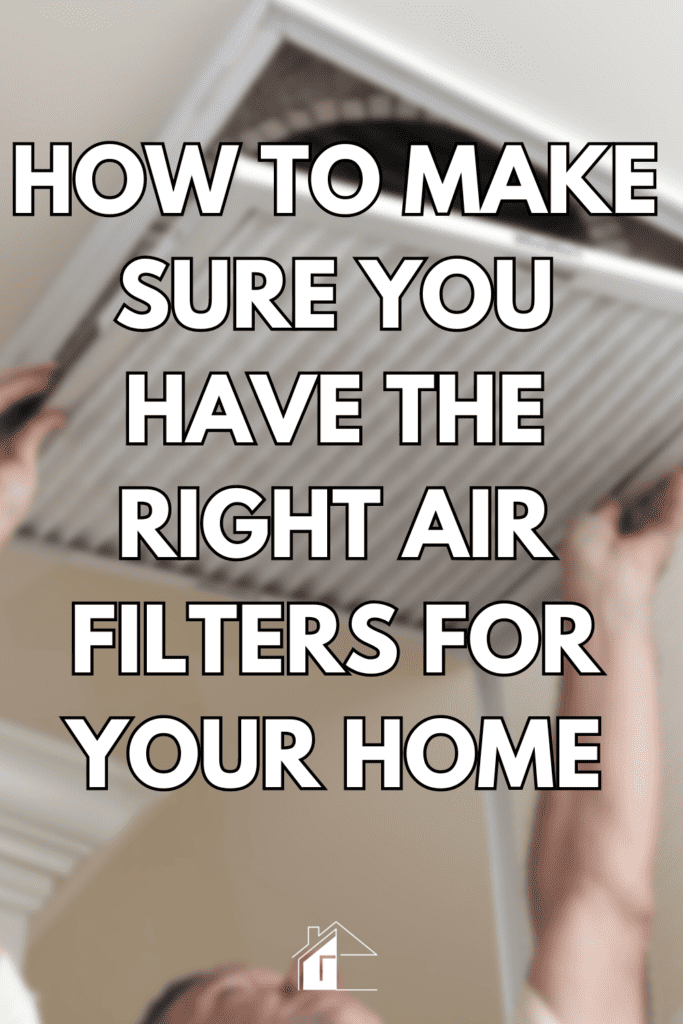
Choosing the right air filters
Factors to consider when selecting air filters for cost savings
When it comes to changing air filters, selecting the right one can make a significant difference in terms of cost savings. Here are a few factors to consider:
- Efficiency: High-efficiency air filters may have a higher upfront cost but can save you money in the long run. These filters are designed to capture smaller particles and allergens, ensuring cleaner indoor air and reducing the risk of respiratory issues. By trapping more contaminants, they can also extend the lifespan of your HVAC system, saving you money on repairs and maintenance.
- Lifespan: Consider the lifespan of the air filter before making a purchase. While cheap filters may have a lower price tag, they typically need to be replaced more frequently. Investing in a higher-quality filter that lasts longer can save you money over time.
- Filter Type: Different types of filters, such as fiberglass, pleated, or electrostatic, offer varying levels of filtration and cost-effectiveness. Pleated filters, for example, provide better filtration and typically last longer than fiberglass options.
Different types of filters and their cost-effectiveness
- Fiberglass Filters: These are the cheapest option when it comes to air filters. While they are effective at capturing larger particles, they may not be as efficient in trapping smaller allergens. They are often recommended for low-cost solutions in areas with low air pollution.
- Pleated Filters: Pleated filters are more efficient in capturing smaller particles and allergens. They generally have a higher initial cost but provide better filtration and a longer lifespan. Investing in pleated filters can lead to cost savings in the long run.
- Electrostatic Filters: These filters use electrostatic charges to capture particles. While they are more expensive, they can be washed and reused, which can save you money over time. They are particularly beneficial for individuals with allergies or respiratory conditions.
The right air filters can help save you money in the long run. Consider factors such as efficiency, lifespan, and filter type when making your selection. Investing in higher-quality filters that provide better filtration and last longer can lead to cost savings on maintenance, repairs, and potential health expenses.
DIY air filter replacement versus professional services
The cost comparison between self-replacement and professional services
When it comes to changing air filters, many people wonder whether DIY replacement or hiring professional services is more cost-effective. Let's compare the costs associated with both options.
DIY air filter replacement allows you to purchase the filter directly from a store or online retailer. This option is generally more affordable, as you only need to cover the cost of the filter itself. However, it's important to consider the time and effort required to replace the filter correctly.
On the other hand, professional air filter replacement services may come at a higher upfront cost. This is because you are paying for the expertise and convenience provided by the professionals. They will ensure that the filter is properly installed and that your HVAC system is functioning efficiently.
Considerations for determining the most cost-effective option
When deciding between DIY replacement and professional services, there are a few factors to consider:
- Skill and knowledge: DIY replacement may be a viable option if you have experience and knowledge in HVAC systems. However, professional services can provide peace of mind if you are unsure or lack the necessary skills.
- Time availability: DIY replacement can take time, especially if you are not familiar with the process. Hiring professionals can save you valuable time if you have a busy schedule.
- HVAC system warranty: Some HVAC system warranties require professional installation of air filters to remain valid. Be sure to check your warranty terms before deciding.
While DIY air filter replacement may be more cost-effective upfront, professional services offer expertise and convenience. Consider your skill level, time availability, and warranty requirements to determine your most cost-effective option.
Conclusion
The financial benefits of regularly changing air filters
Regularly changing your HVAC air filters can have significant financial benefits. One of the immediate benefits is lower energy bills. Clogged and dirty air filters force your HVAC system to work harder to push air through, resulting in higher energy usage and utility bills. Regularly changing your air filters can reduce the strain on your HVAC system and improve its efficiency, leading to lower energy consumption and cost savings.
Additionally, changing your air filters can extend the lifespan of your HVAC unit. When air filters are dirty and clogged, it puts unnecessary stress on the system, leading to premature wear and tear. Keeping your air filters clean can prevent costly repairs or the need for an early replacement.
Tips for maintaining a cost-efficient HVAC system
Apart from regularly changing air filters, there are other tips you can follow to maintain a cost-efficient HVAC system:
- Schedule regular maintenance: Professional HVAC maintenance can help identify and address potential issues before they become major problems. This proactive approach can save you money on costly repairs and improve the overall efficiency of your system.
- Use programmable thermostats: Installing programmable thermostats allows you to set specific temperature preferences for different times of the day. This can help optimize your energy usage and reduce your utility bills.
- Improve insulation: Proper insulation in your home can prevent heat or cool air from escaping, reducing the workload on your HVAC system. This can lead to energy savings and lower bills.
By following these tips and regularly changing your air filters, you can save money and enhance the comfort and longevity of your HVAC system.

